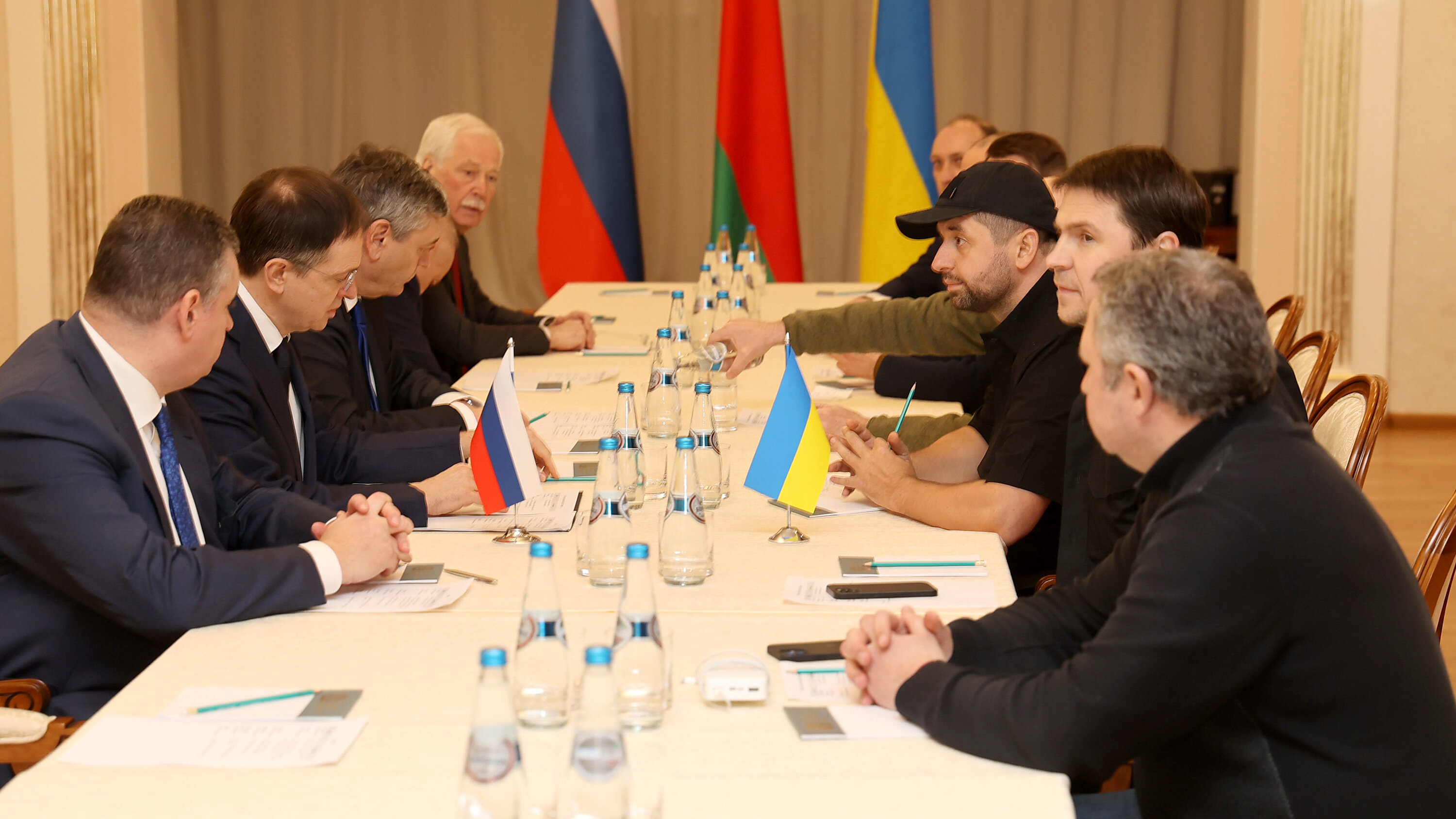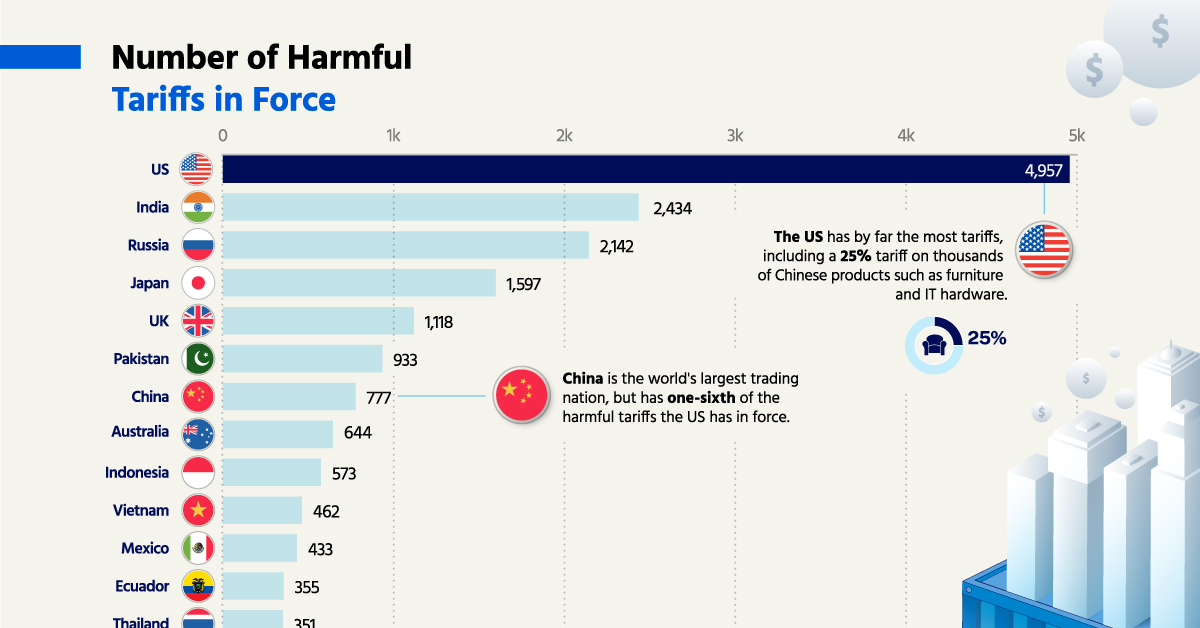Putin's Peace Talks Proposal: A Diplomatic Failure?

Table of Contents
1. Lack of Genuine Commitment to Negotiation
Putin's proposal, far from demonstrating a genuine desire for peace, appears to be a thinly veiled attempt to legitimize his aggression and consolidate territorial gains. This is evident in the inherent flaws within the proposal itself.
1.1 Ultimatums and Preconditions:
The proposal is riddled with unreasonable demands that effectively preclude any meaningful negotiation. These preconditions reveal a lack of commitment to genuine compromise.
- Recognition of annexed territories: Putin demands recognition of Crimea's annexation in 2014 and the territories illegally seized since February 2022. This is a non-starter for Ukraine and the international community, as it violates international law and Ukraine's sovereignty.
- Demilitarization of Ukraine: This demand aims to cripple Ukraine's ability to defend itself, leaving it vulnerable to further Russian aggression. Such a condition is clearly not conducive to a peaceful resolution.
- These demands, presented as non-negotiable preconditions, demonstrate a fundamental lack of good faith and a willingness to engage in genuine dialogue. They effectively shut down the possibility of compromise and a mutually acceptable agreement.
1.2 Historical Revisionism and Propaganda:
Putin's narrative consistently employs historical revisionism and propaganda to justify his actions and portray Ukraine as an illegitimate state. This manipulative framing of the conflict further undermines any possibility of diplomatic success.
- Distorted historical narratives: Putin's rhetoric frequently distorts historical events, attempting to portray Russia as the victim and Ukraine as an aggressor, thereby justifying the invasion.
- Denial of Ukrainian identity and sovereignty: The propaganda actively seeks to undermine Ukrainian national identity and its right to self-determination, fueling the conflict and hindering diplomatic progress.
- This disinformation campaign, aggressively disseminated through state-controlled media, actively hinders peace efforts by poisoning the well of international opinion and preventing a fair and unbiased assessment of the situation.
2. Ignoring Ukraine's Sovereignty and Territorial Integrity
Perhaps the most glaring flaw in Putin's peace talks proposal is its complete disregard for Ukraine's sovereignty and territorial integrity, fundamental principles enshrined in international law.
2.1 Violation of International Law:
The proposal represents a blatant violation of numerous international laws and treaties. It demonstrates a complete disregard for the established norms of international relations.
- Illegal annexation of Crimea (2014): The annexation of Crimea is a clear violation of international law, a precedent that emboldened Putin's subsequent full-scale invasion of Ukraine.
- Invasion and occupation of Ukrainian territories (2022): The unprovoked invasion and subsequent occupation of Ukrainian territories constitutes a grave breach of international law and the UN Charter.
- These actions undermine the international rules-based order and threaten global security. The proposal's failure to address these violations renders it inherently unacceptable.
2.2 Lack of Consultation with Ukraine:
The proposal was presented without meaningful consultation with Ukraine, demonstrating a profound disrespect for its perspective and a fundamental disregard for its sovereign rights.
- Exclusion from the negotiation process: Ukraine was not involved in the formulation of the proposal, further highlighting the lack of genuine commitment to negotiation.
- Imposition of terms, not collaboration: The proposal's unilateral nature is a clear indication that it is not designed to achieve a mutually acceptable outcome.
- This lack of consultation renders the proposal inherently illegitimate and further erodes the possibility of achieving a lasting peace.
3. The West's Response and Counter-Proposals
The West's response to Putin's peace talks proposal has been unified and firm, reflecting a collective rejection of Russia's attempts to impose its will.
3.1 Allied Unity and Sanctions:
Western allies have shown remarkable unity in their response, imposing comprehensive sanctions on Russia and providing substantial military aid to Ukraine.
- Economic sanctions: Wide-ranging sanctions targeting Russian banks, energy, and individuals have been implemented to pressure Russia.
- Military aid to Ukraine: Significant military assistance, including weapons and training, has been provided to help Ukraine defend itself.
- This coordinated approach demonstrates a firm resolve to support Ukraine and oppose Russia's aggression.
3.2 Alternative Diplomatic Approaches:
Western powers have also explored alternative diplomatic approaches to address the conflict, prioritizing a just and lasting peace based on respect for international law and Ukrainian sovereignty.
- Emphasis on Ukrainian sovereignty and territorial integrity: Counter-proposals focus on upholding Ukraine's right to self-determination and the restoration of its internationally recognized borders.
- International mediation efforts: Efforts are underway to facilitate dialogue and find a peaceful resolution through international mediation.
- These alternative approaches represent a far more viable path towards lasting peace than Putin's unrealistic and self-serving proposals.
Conclusion:
Putin's peace talks proposal, characterized by its lack of genuine commitment, disregard for Ukrainian sovereignty, and violation of international law, has been rightly viewed as a diplomatic failure. The West's unified response, including sanctions and support for Ukraine, demonstrates a collective rejection of Russia's attempts at imposing a dictated peace. The focus must remain on upholding international law, respecting Ukrainian sovereignty, and pursuing diplomatic solutions that lead to a just and sustainable peace. We urge readers to stay informed about developments related to Putin's peace talks proposal and to critically evaluate any future peace initiatives, ensuring they prioritize a lasting peace based on respect for international law and the principles of self-determination. Engage in informed discussions, and support diplomatic efforts that champion a just and lasting resolution to the conflict in Ukraine.

Featured Posts
-
 Selena Gomez Vs Taylor Swift A Wake Up Call Over Blake Lively And The Justin Baldoni Lawsuit
May 18, 2025
Selena Gomez Vs Taylor Swift A Wake Up Call Over Blake Lively And The Justin Baldoni Lawsuit
May 18, 2025 -
 Trump Declares Taylor Swift No Longer Hot Maga Supporters React
May 18, 2025
Trump Declares Taylor Swift No Longer Hot Maga Supporters React
May 18, 2025 -
 Find Easy A On Bbc Three Hd Your Complete Tv Guide
May 18, 2025
Find Easy A On Bbc Three Hd Your Complete Tv Guide
May 18, 2025 -
 Conforto Fuels Dodgers Win Against Mariners With Impressive Showing
May 18, 2025
Conforto Fuels Dodgers Win Against Mariners With Impressive Showing
May 18, 2025 -
 Kalorama 2025 Star Studded Lineup Featuring Pet Shop Boys Fka Twigs Jorja Smith And Father John Misty
May 18, 2025
Kalorama 2025 Star Studded Lineup Featuring Pet Shop Boys Fka Twigs Jorja Smith And Father John Misty
May 18, 2025
Latest Posts
-
 Top Entertainment News Must Read Stories For Movie Music And Tv Fans
May 18, 2025
Top Entertainment News Must Read Stories For Movie Music And Tv Fans
May 18, 2025 -
 Southwest Washingtons Economy Navigating The New Tariff Landscape
May 18, 2025
Southwest Washingtons Economy Navigating The New Tariff Landscape
May 18, 2025 -
 Entertainment News Today Breaking Celebrity News And Pop Culture Updates
May 18, 2025
Entertainment News Today Breaking Celebrity News And Pop Culture Updates
May 18, 2025 -
 Destino Ranch Upgrades Media Infrastructure With Golden Triangle Ventures Lavish Entertainment And Viptio Partnership
May 18, 2025
Destino Ranch Upgrades Media Infrastructure With Golden Triangle Ventures Lavish Entertainment And Viptio Partnership
May 18, 2025 -
 Catch Spencer Brown At Audio Sf On May 2nd 2025
May 18, 2025
Catch Spencer Brown At Audio Sf On May 2nd 2025
May 18, 2025
